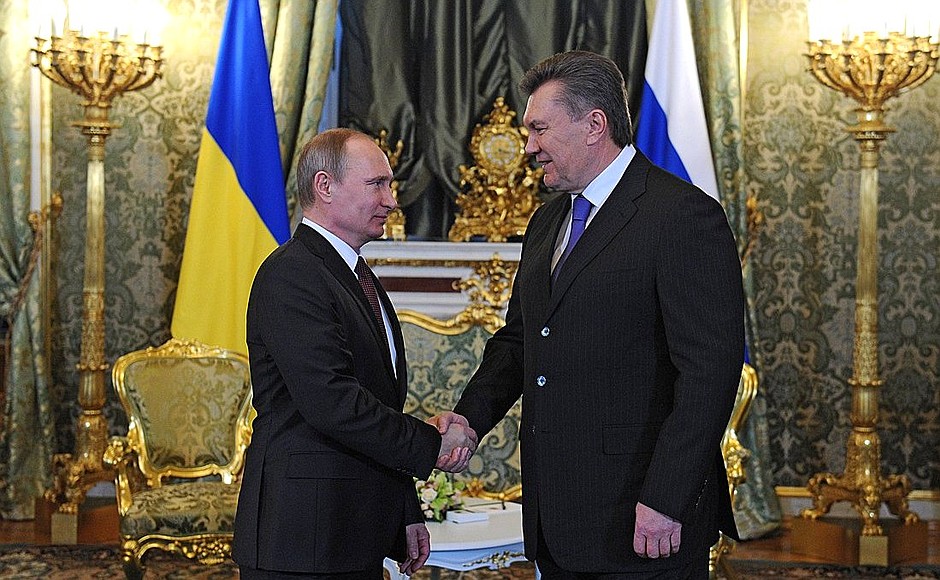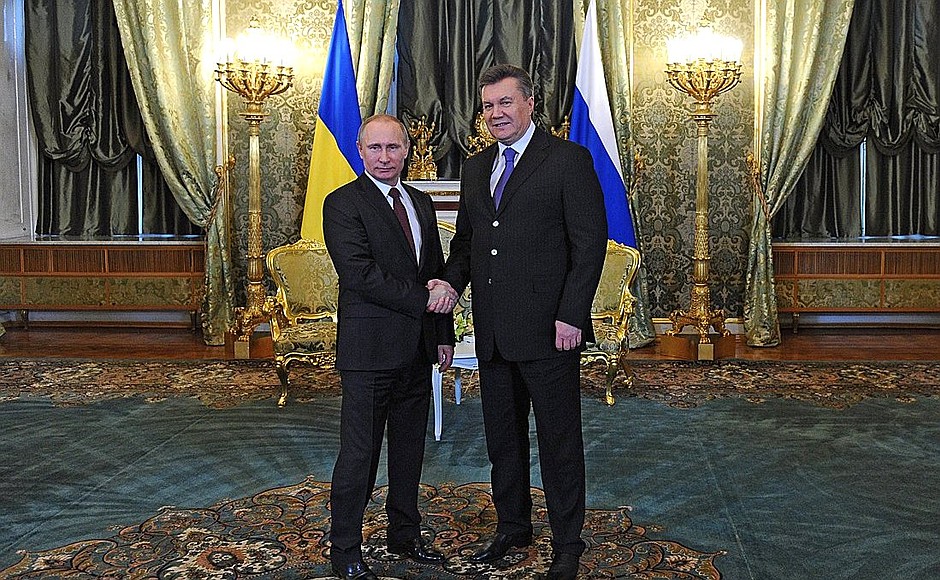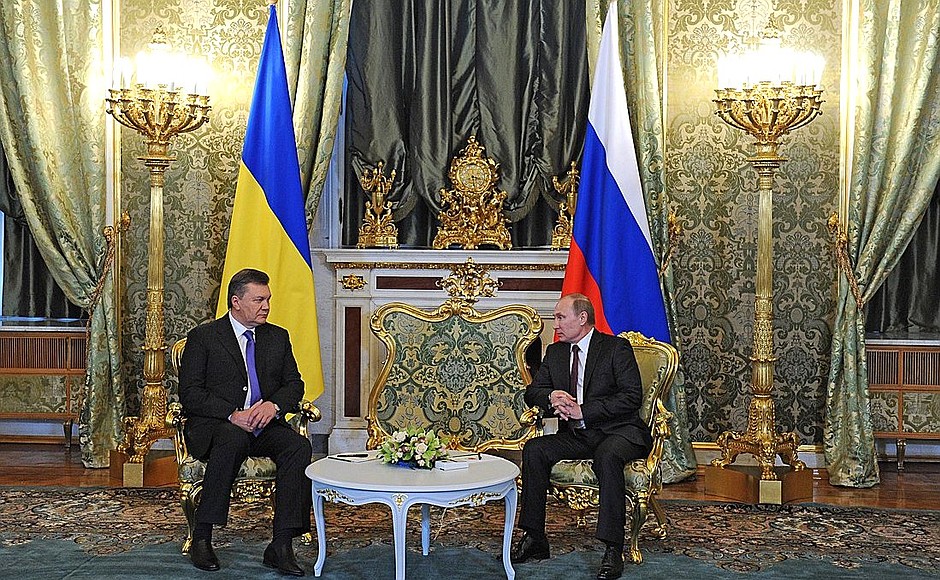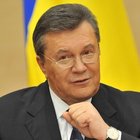The meeting between the two heads of state was held prior to the session of the Russian-Ukrainian Interstate Commission.
President of Russia Vladimir Putin: Mr Yanukovych,
It gives me great pleasure to welcome you to Moscow. This is a regular meeting scheduled to take place prior to the interstate consultations, and I very much hope that we can move forward in addressing the most important issues.
There can be no doubt that Ukraine is our strategic partner and ally in the fullest sense of the word. Unfortunately, as we noted during our recent meeting in Sochi, we have seen a decrease in trade over the past two years: 11 percent in 2012 and a further 14.5 percent this year. Therefore, it is time to take vigorous action so that we not only return to the level of previous years, but also create the conditions for moving forward.
Lately, our colleagues in the Government – the prime ministers and other members of our countries’ cabinets – have been working very successfully in several vitally important sectors, including energy, machine engineering, space, aviation and shipbuilding. I know that you have been briefed on the results of their work. Today we will have an excellent chance to strengthen our legal base in in these areas, and to create all the conditions necessary for expanding trade and economic relations between Russia and Ukraine.
I am very pleased to see you. Welcome!
President of Ukraine Viktor Yanukovych: Thank you, Mr Putin.
I want to stress too that at governmental level, we went over very thoroughly the sensitive issues for our economy. You were completely right to note that the drop in bilateral trade that we have seen over these last two years, and that we discussed in depth in Minsk and then in Sochi, now requires urgent intervention on our part.
I think that over the coming period we will need to coordinate this work not just between Russia and Ukraine themselves, but also with the other CIS countries, so as get the free trade zone working to its maximum potential.
We know that the high level of cooperation that exists between Ukraine and Russia attracts other CIS countries too. Ukraine will do everything it can to coordinate this work as the country holding the CIS Presidency in 2014. We must use this opportunity to improve the situation, because the companies that have begun feeling the impact of falling trade are facing economic difficulties.
It is technically impossible and simply not profitable to produce only small volumes at plants with a continuous production cycle. Changing the situation is therefore our common task. I know that you are familiar with the work our governments have done. The agreements that have been drafted and the measures we will take over this coming period will make a big difference to improving the situation in the immediate future.
Some sectors will require much more fundamental decisions. There are a number of areas in which we could produce new goods of new quality together. This would be something from which both countries would benefit.
I have to mention the traditional issue on our agenda – gas. Regarding the programme that Gazprom is proposing to Ukraine, and Naftegaz also sees opportunities here, I think that neither we nor you will hinder these agreements. We will settle all the issues on a reciprocal advantage basis. Manufacturers in Ukraine are very much looking forward to seeing this happen.
I also want to mention sensitive issues such as energy-sector machine-building, transport machine-building, shipbuilding, aircraft manufacturing and the space sector. These programmes are all either ready now or require a little more work and will soon be ready, this year I think. If there is anything we do not sign today, we will need to sign it very soon and continue our work. In other words, today’s meeting is a strategic one to a certain extent, given the number of decisions ready for approval, especially in bilateral trade.
We must not stop there but must continue to develop this strategic partnership. We are talking here about trade between the border regions too, and interregional cooperation. We must develop these areas, which make it easier for both goods and people to cross the borders.
These are also issues that we should make the focus of the business forums that we hold. The regions can do a lot, but it is very important to give them the right conditions, and most importantly of all, not to get in their way. They will always be quick to reach agreements, especially the border regions. I think this is something that we should make a constant focus in our work.
I want to mention too the celebrations of the 200th anniversary of Taras Shevchenko’s birth. We have a programme for the 2014 anniversary celebrations, which, I was told, you have seen and approved. Taras Shevchenko was the poet who did much to unite our peoples. He was also a man of great foresight, who had far-reaching vision and left us a great legacy.
Thank you, Mr Putin, for the work that has been done. I think the results of this work will form the base for our further action.
Vladimir PUTIN: You mentioned one of the aspects of our humanitarian cooperation, the 200th anniversary of Taras Shevchenko’s birth. Our colleagues in this area have also been hard at work and have specific proposals for developing our humanitarian ties. This is very important, and not just for people who have relatives in each other’s countries – and there are many such families in Russia and Ukraine – but also for those who have come to Russia to work.
Official statistics put the number of people from Ukraine working in Russia at around 1.5 million people, and various estimates give a figure of up to 5 million people. This is a large number and we must create good conditions for these people so that they are free to live and work here, cross the border and help and support their families back home. We will discuss all of this today.
<…>



